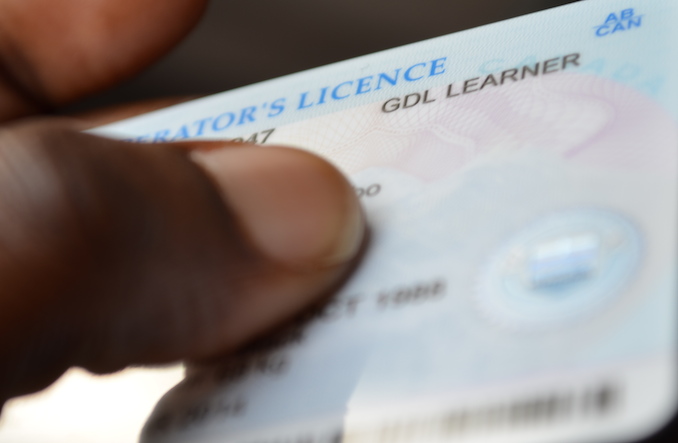"The last 500 hundred years of European contact with Africa produced a body of literature that presented Africa in a very bad light... more
10 Pre-Arrival Tips for Would-be African Immigrants
When most African immigrants board a plane to the west, little preparation is done to ease their arrival into a new, drastically different society. They arrive with advanced academic degrees but often with so little work experience.
The expectation is always sky high, owing to the academic degrees in their bags. But the west has never been certificate crazy. Work experience counts more; only that few immigrants realize this.
Before someone you know sets sail to the west, it may help to bring these Afrospora.com's pre-arrival tips to their attention.
Pre-arrival Tips for Economic Migrants
- Research your country of destination
Moving to another country is a big decision that most take lightly. It is imperative that you put all your options on the scale and only choose to move if nothing else compares. Once the decision is reached, carry out an exhaustive research on your country of choice and if Canada is the lucky pick, make sure you learn about the province where you will be most marketable should you be a full-fledged professional.
- Carry your family along
Discuss your resettlement plans with your family to ensure that you are all on the same page. If you have kids, no matter how young, start telling them about their future country months before you board the plane. You will be surprised how negatively impacting poor mental preparation can be on your resettlement plans.

- Research the weather pattern in the new country
Once you are certain to immigrate to either Canada, US or any other western country with known weather extremes, try to schedule your arrival to coincide with the summer months.
Arriving in the summer or fall session allows for acclimatization; and for anyone with the hopes of securing accommodation and a job upon arrival, the warm summer or mildly-warm fall months give you an opportunity to move around and cover great distances in comfort.
For a newly arrived immigrant without a permanent guide, movement in the winter months - no matter how purposeful - could be a nightmare.
- Reach out
Before you leave your home country, start networking with friends who may have been long established in your chosen country.
Call up everyone you know and inform them of your impending arrival. This is no time to play the “I don’t need anybody” or “I do not want anyone to know about my travelling plans” card. To make your settlement as smooth as you would want it to be, you do need help and I cannot over-emphasize how much of it you need.
For instance, childcare is hardly an issue for anyone back in Africa, but in the west, childcare is an issue that keeps African parents up at night.
- Adapt your resume to the style in the new country
You should attempt applying for jobs by calling up numbers or emailing contacts on job adverts. Request assistance from your acquaintances in securing a job in your field. A blue-collar job may not be a bad idea to start with, given the known difficulty newly arrived immigrants have in securing white-collar jobs in a new country.
The first step to securing employment is getting an interview. Speaking metaphorically, it's a leg in the door. One way of landing interviews is preparing a good resume. In most African countries, resumes have no defined pattern; as a result, many Africans do not have resume-writing skills.
As shown in the photo above, newly-arrived applicants have been known to include their dates of birth, ethnicities, religious affiliations, political alignment, sexual orientations etc. in their resumes. In the developed world, resumes do not include any of these facts as they are considered to be grounds for discrimination.
A resume should, typically, not exceed 2 pages. It can be more than 2 pages if it is intended for a faculty position in an academic institution.
If you are yet to arrive in your new country but you plan to prepare a resume, you should include in your resume an acquaintance's residential address and contact phone number in the new country. This essentially connects your resume to the new country, thereby enhancing your chances of landing interviews.
- Choose your in-country residence wisely
Make guided, logical and pragmatic decisions. In Canada, Alberta's economy is booming. Understandly, many job-seeking Canadians and immigrants are heading to the prairies. If you are moving to Alberta only because your friend lives there, think again. It may be working out just fine for your friend who is an engineer in the oil and gas sector. For you, a seasoned investment banker, Ontario, British Columbia or Quebec might be a better fit.
- Build a financial war-chest
If you have not already secured a job pre-arrival, then make sure you have a financial buffer. Have funds to last for at least 6 months should you not get a job – preferred or temporary - upon arrival. Examples abound: Olu, a Nigerian resident in Canada, relies on his investment back home to cater to the financial needs of his family. When he couldn’t get a job upon arrival, he enrolled in school to “upgrade” but the cash in hand depleted fast.
He presently relies largely on his rental properties in Ghana and Nigeria for income. Olu and his wife have three degrees between them but either is yet to get a job befitting their qualifications.
- Consider certification
It is general knowledge that it is not easy to get a job in most fields - based purely on your original transcripts or previous non-indigeneous work experience - without going through countless hurdles. A serious step to consider taking is an online certification from your chosen country. In Canada for instance, having a certification from a local institution will certainly place you one step ahead of your peers.
If you are a qualified lawyer from Africa, you may consider getting a legal assistant certificate should you intend to get into the legal field upon arrival. You may get a job in your field sooner than your peers with only their home qualifications to show. Kethy from Cameroun was able to secure an articling position in the firm where she served as a legal assistant. That could be you!
- Secure accommodation before arriving
Any individual who is immigrating alone can make the trip to their new country without much ado. But for someone who is moving their family, it is advised that a reconnaissance trip be factored into the preparation/planning activities. If possible and if logistical details allow, make a trip to the new country ahead of the rest of your family.

Secure an accommodation, keeping things such as proximity to a friend, school, grocery shops, work, bus terminals/stops, parks, recreational centres and other amenities in mind. Remember, you may not be able to drive as soon as you arrive so you want to make sure you can easily access life's necessities with as little hassle as possible.
- Maintain your existing driver's licence
Although traffic and driver's certification rules may be markedly different in the new country, do not discount your driving history from your home country. No matter how great a driver you are in Cameroun, Uganda or Senegal, in most North American countries, before you can drive, you will have to first pass a computer test and then a mandatory road test. So, before you start out, secure a copy of your driver’s license, abstracts and any other relevant document you can lay your hands on.

You could exchange your African driver's licence for a shorter term, including waiving the one year wait time (mandatory in some countries) before the qualifying road test.
Lastly: read, read, and read about your new home-to-be! You can never go wrong there.
**
If you missed it, check out the article Thinking of Immigrating?
We like to hear from you. Leave a comment or email us at info@afrospora.com. Share this article with friends and invite them to like Afrospora.com on Facebook!










Post new comment